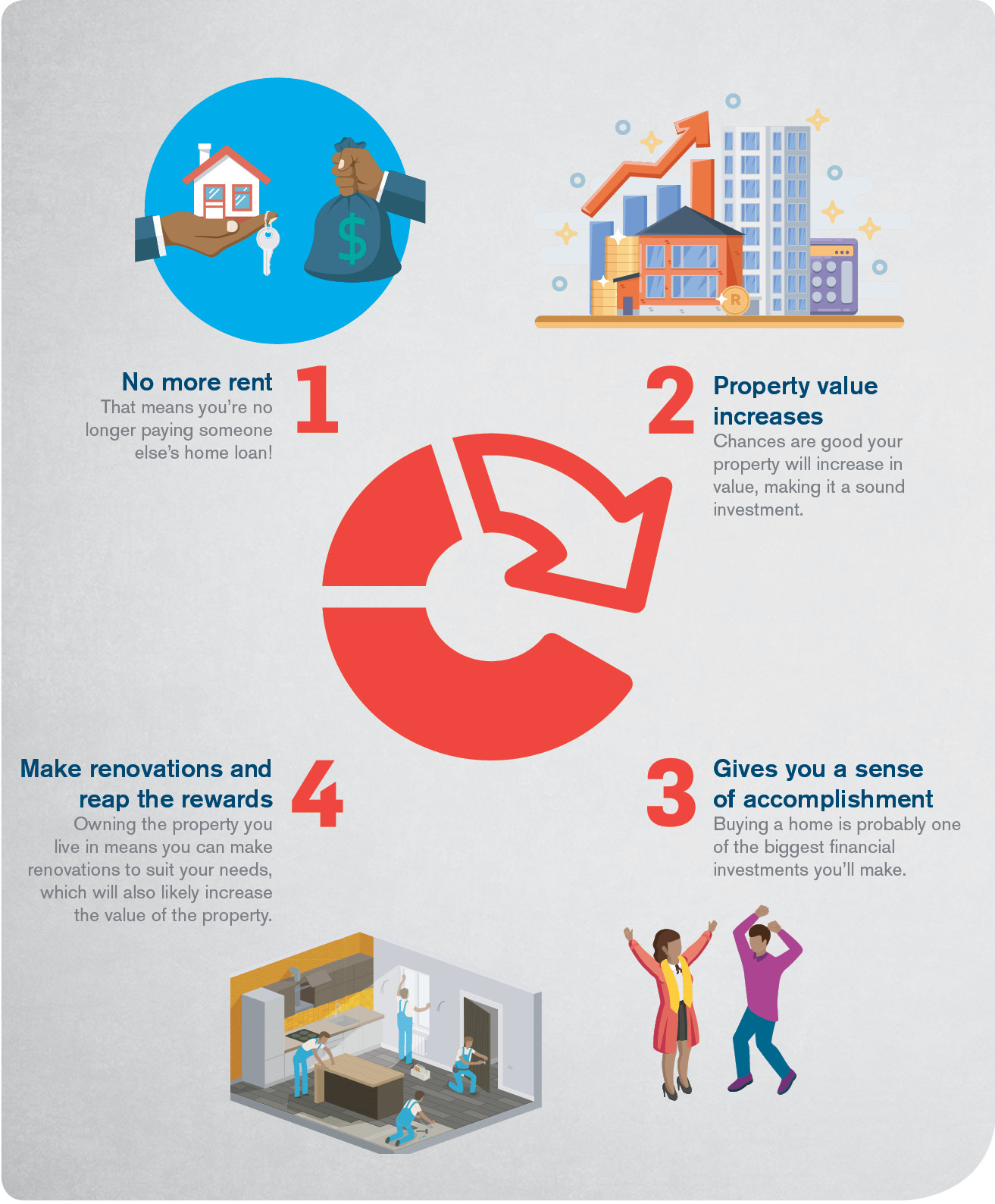“The current low interest rate environment has many people who previously could not afford a property entering the market for the first time,” says financial journalist Maya Fisher-French. “It certainly offers new opportunities, so make sure you’re financially ready for it. Keep in mind that interest rate will rise at some point again and then you should still be able to afford your loan.”
If you wonder if you should rather keep on renting, weigh up the pros and cons for your situation over the longer term. Renting can be more affordable in the short term, so if you’re after a short-term solution, it pays to rent rather than putting down (expensive) roots as a homeowner.
Nicolette Mashile, better known as the Financial Fitness Bunny, explains that on the other hand, homeownership does make sense over time. “As rentals increase each year, they eventually match what you’d pay for your bond. At that point, the cost argument disappears and it makes more financial sense to get into the property market.”
The costs of buying property
To ensure you can afford your dream home, you should factor in various costs aside from the purchase price.
“You have to budget for quite a few additional costs, such as the transfer duties, bank fees, bond costs, municipal utilities and, don’t forget, homeowner’s insurance too,” says Fisher-French.
Allow for these expenses in your budget:
- Deposit - Although you don’t have to pay a deposit, it can help reduce the amount you need to borrow from the bank, which means you’ll pay less in interest
- Transfer duties - Depending on the value of the property, you are charged transfer duties. Quite simply, this is the tax charged to transfer the property into your name from the previous owner’s
- Bond cost - You’ll also have to pay an attorney to register your bond. This cost is calculated as a percentage of the home’s value, as well as extras like stamp duty, VAT and registration fees at the deeds office. Capitec home loan clients can save up to 50% on attorney fees through SA Home Loans’ National Panel of Attorneys
- Bank fees - You’ll be charged an initiation fee for opening a home loan, as well as a monthly administration fee
- Municipal utilities - Before you move in, you may have to pay your local municipality so they can connect your utilities like lights and water. There will also be a monthly utilities bill for usage of these services
- Insurance - You need to have insurance to cover the structure of the home in the event of a fire or flood, for example
Also keep in mind there are running costs involved when owning property. “It’s not just your bond payment; you’ll have lots of other bills like electricity, water, rates, insurance and maintenance to cover,” says Fisher-French.
She recommends that before buying property, you should try to put the money aside to cover ongoing costs such as the above. “See if you can save that amount each month. If you can live on that budget, you know you can really afford it. Plus, you can use the money you saved for a deposit or to cover other costs, such as moving or transfer fees.”
You can apply for a home loan at Capitec of up to R5 million over 30 years (depending on your affordability and credit profile) making that dream home a reality.
Applications can be done from anywhere, anytime on Capitec’s online home loan portal. There are 4 straightforward steps to follow, which can be completed in less than 5 minutes. Visit the portal here.
After an application is underway, you can track it in real-time on the home loan portal. Simplified into 6 steps, the portal shows exactly where you are in the process, what the next step is and if anything more is needed from you.
Along with the portal, you’ll also be assigned a home loans consultant, who is available to help you if you have questions or need assistance at any stage.
4 great reasons to use a home loan

Get a Capitec home loan
Make your family’s dream home a reality with a Capitec home loan. Apply online today.






